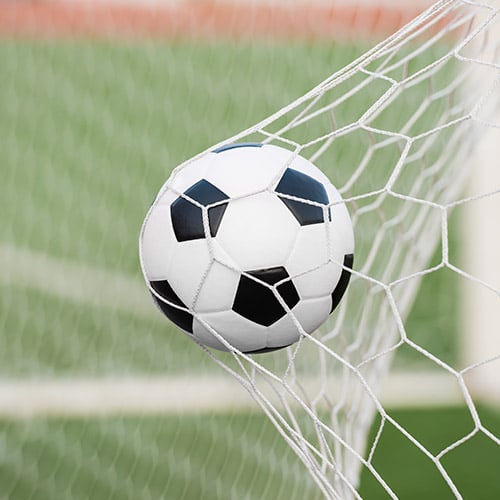If you ask athletes what the difference between their best and worst performance was, most will say that it was ‘all in their head.’ Despite this, most athletes spend the majority of their time on physical training, forgetting the importance of training their mind. Sport psychology can help athletes of any level to optimise their mindset and unlock their potential, to make every performance their best performance.
But, sport psychology isn’t just about improving performance: it has many other uses. For amateurs, engaging in sport psychology support is an investment in improving their hobby. However, it can also reach into other areas of their lives too, since they are not just athletes and performers.
At InnerDrive, we offer sports psychology coaching and training that is personalised to each individual athlete. This means we can provide effective and high quality support, no matter what your goals are.
What are the uses of Sport Psychology?
Improving performance
All athletes experience blocks in performance. This could be difficulty reaching the next level of ability, a one-off choking moment, or a prolonged period of not performing their best. Whatever the scenario, blocks in performance are rarely physical - hence the need for a psychological perspective on them. Sport psychologists can help athletes to work through these challenges and consistently perform well. Part of this involves developing a growth mindset, to help athletes understand how they can learn, grow and thrive.
Getting you ‘in the zone’
Every athlete will eventually experience some kind of pressure. This can be the pressure of a professional game, or the pressure of your own expectations. Sport psychology can help athletes to better manage how they perform under pressure.
This includes giving them strategies to improve their focus and ability to deal with distractions. It also means helping athletes to find the right level of arousal for optimum performance. In other words, getting them ‘in the zone’. Athletes should be ‘charged up’ to perform well. But, being over-excited, or so motivated that they experience intense pressure, is exactly what can lead to mental roadblocks and choking moments.
Making you ‘mentally tough’
One key aspect of sport psychology is helping athletes to manage their emotions. This includes developing the coping skills and resilience needed to manage how they react to losses and wins, or good versus bad performances. It’s a part of developing their mental toughness.
It means helping them to recognise and deal with the anger and frustrations that they might feel, as well as challenging the irrational beliefs that can surround these. This can apply to a variety of problems, from the emotional impact of injury, to the public criticism of professionals, to daily stressors and other traumas that any athlete can experience.
Making the most of your time
Sport psychology coaching can also help athletes to manage their time better. This involves developing the motivation to exercise and train, and maximising that training time too. Professional athletes may need to establish an effective training regime - amateurs might wish to keep a weekly routine that incorporates their sporting hobby around the demands of daily life. Either way, coaching can help athletes to get the best out of their training time.
Re-discovering your love
Most people take up a sport because they love it. You don’t need to be a pro to experience the highs of a sport, but also its lows: pressures, stresses, and blocks in performance. These things can sap the joy from being an athlete. Sport psychology can help athletes to overcome these stresses and enjoy sports again. It lets them rediscover their love for a sport that made them take it up as a career or a hobby in the first place.
Is sport psychology only for elite athletes?
Some people claim that sport psychology is solely for serious athletes, and that it does not apply to those who engage in sport for fun and socialising. Others argue that sport psychology techniques can very much apply and transfer to amateurs. Even when sport is a hobby, most people want to improve their performance to some extent.
So, sport psychology can benefit any athlete, even if they’re not a professional who must perform at an elite level under extreme pressures. It extends to improving other areas of life too; helping athletes to understand how they learn, deal with everyday pressures, manage stress, be self-aware, and have emotional control and motivation. As sport psychologists, we also help our athletes with their all-round development, both on and off the playing field.
What does Sport Psychology look like?
So, what can you expect from sport psychology coaching? At InnerDrive, we specialise in providing sport psychology support that is tailored to each athlete. This means we can help them to identify the specific areas and goals they wish to work on, and develop an action plan to tackle them.
Coaching involves teaching essential strategies to improve learning, confidence, concentration, motivation and resilience, as well as the skills needed to manage nerves and frustration. We work on developing athlete self-awareness, as well as shaping the way that athletes talk to themselves, developing helpful self-talk.
Combined, this helps athletes, no matter what their level, to play and live to their full potential. Sport psychology support can happen wherever athletes prefer, be this in their home or on the playing field, in person or over a call. It can also involve working with other coaches, support staff, parents and partners, if the athlete wishes.
We have had lots of successes working with athletes including Premier League football teams, academy level players, team GB athletes who went on to medal at London 2012 and Rio 2016, and the British Army. If you’re interested in sport psychology support with one of our experienced sport and performance psychologists, or just want to learn more, please do get in touch.





